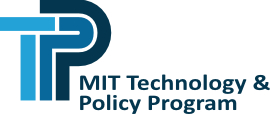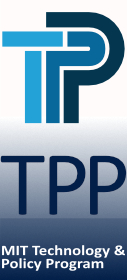Introduction and Mission
Modern society is faced with a growing array of increasingly complex economic and technical problems whose solutions require the expertise that is the hallmark of graduates of the Institute. Moreover, governments must make difficult decisions regarding how to distribute increasingly limited resources while balancing the interests of a wide range of stakeholders.Thus, the MIT Certificate Program in Science, Technology and Policy (STP) seeks to complement the outstanding academic experience MIT currently provides to its science and engineering PhD students with a rigorous introduction to the social and policy contexts in which their research is embedded. The required curriculum provides a coherent, rigorous introduction to the STP arena that can be reasonably integrated with the traditional PhD workload.Requirements
Common core
- One full core course to introduce STP and the fundamental tools and methods for policy analysis.
- SPI Science Policy Bootcamp to introduce policymaking in action as applied to real-world issues in science and technology. Bootcamp is a one-week, 3-credit IAP course taught by former MIT Washington Office Director Bill Bonvillian and organized by the MIT Science Policy Initiative (SPI).
Elective requirements
- One full approved elective course to deepen the core skill set and/or to apply it to a specific policy area. Subject to Faculty Board approval; list of sample courses found here.
- Capstone project: an original intellectual contribution to the science policy academic community. The Capstone project should integrate knowledge from all Certificate courses taken by the student, forging connections among them that extend beyond the scope of a single course. The project may also incorporate original policy research external to course requirements, and may touch upon the student’s technical expertise, though topical overlap with a student’s PhD work is not required. The student is expected to seek outside visibility for their work, such as a presentation/paper at a professional meeting or a chapter in a dissertation (if appropriate); publication in a professional journal is encouraged though not required. The Faculty Board will help connect the student with an advisor/mentor to provide intellectual and professional oversight for their project. This mentor may be the student’s doctoral advisor, an internship supervisor, or another faculty member or knowledgeable professional on campus. The Faculty Board will give final approval of successful fulfillment of the Capstone requirements.
Note: a project for a qualifying course may provide a useful starting point for further extension and broadening that would ultimately fulfill the Capstone requirement. Students are encouraged to explore options for tailoring a class project toward the objectives of the Capstone, and to work closely with their advisor/mentor in expanding the project after course completion.Examples of potential venues for public presentation of the Capstone project can be found here:
Eligibility
PhD students in the Schools of Science and Engineering who have successfully passed their home program’s PhD qualifying exam are eligible to apply for the STP Certificate program.
How to apply
Please send the following materials to Barb DeLaBarre (barbarad@mit.edu)on a single PDF:
- C.V.
- Personal statement of interest
- Proposed course plan
- Capstone project proposal
- Letter of approval from primary PhD advisor
- Unofficial transcript, or grade report
Benefits of the STP Certificate
- Encourage scientists and engineers to explore the policy context of their research
- Attain dual professional excellence bridging primary research field and STP
- Acquire tools to apply the unique MIT expertise to solve complex socio-technical problems
Institutional sponsorship and governance
The Certificate Program in Science, Technology and Policy is administered by the Technology and Policy Program, and overseen by an Institute-wide Faculty Board, which is jointly responsible for decisions about admissions, curricular content, and final approval of a student’s completion of the Certificate requirements. Current members are Professors Kenneth Oye (Political Science and Data, Systems, and Society), Susan Solomon (Earth, Atmospheric, and Planetary Sciences), Noelle Selin (Institute for Data, Systems, and Society & Earth, Atmospheric, and Planetary Sciences) Richard de Neufville (Engineering Systems and Civil and Environment Engineering), and Charles Stewart III (chair, Political Science).
For question regarding the STP Certificate program, please contact Barbara DeLaBarre. |



